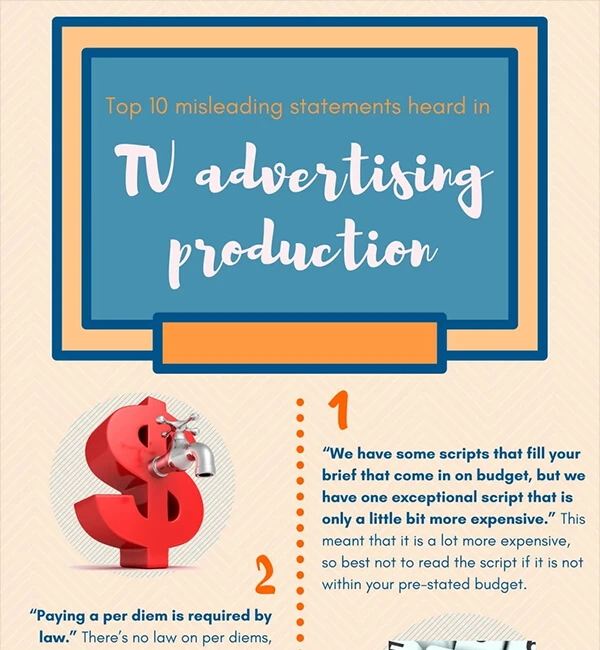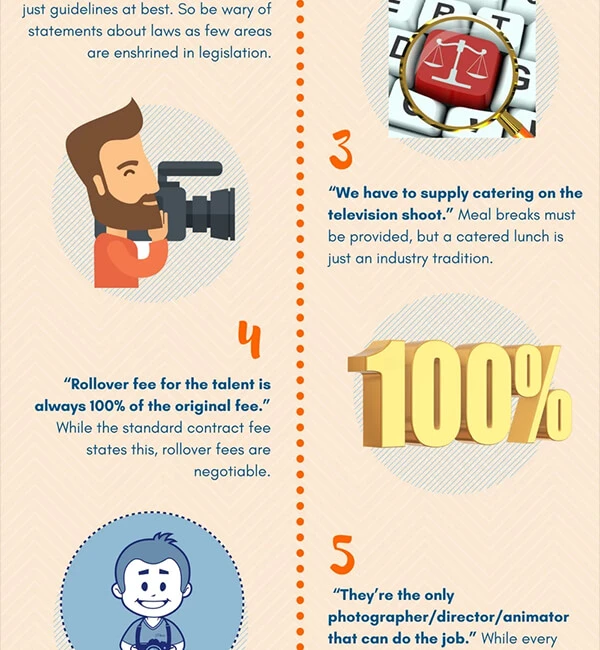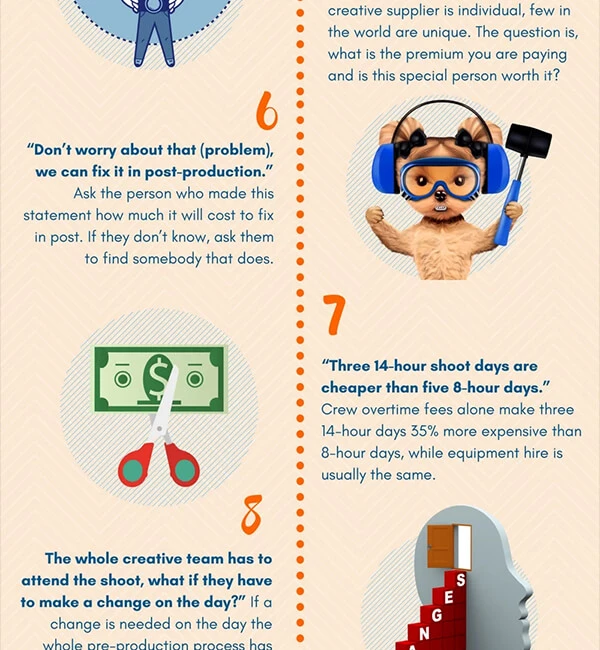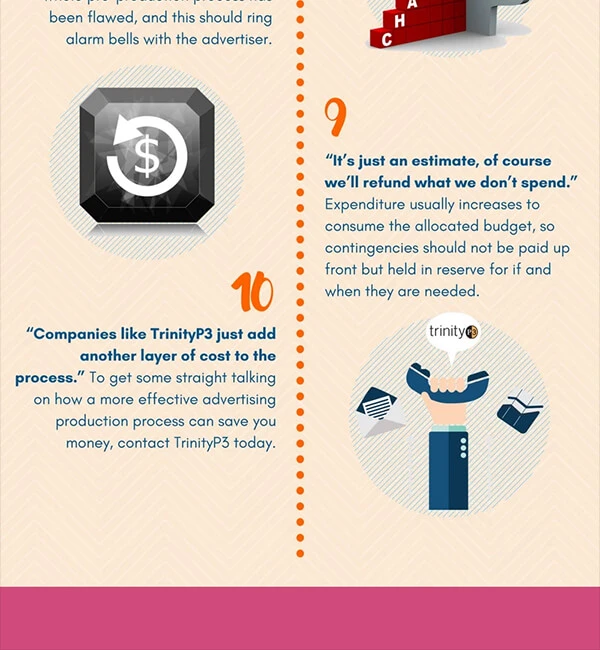While many advertisers believe the agency and their producer is there to represent the advertiser, often there are situations where the interests of the agency and the advertiser are at odds with each other. So beware of some of the jargon and interpretations you may hear. Here’s a few statements to be wary of.
Share this Image On Your Site
From the infographic:
- “We have some scripts that fill your brief that come in on budget, but we have one exceptional script that is only a little bit more expensive.” This meant that it is a lot more expensive, so best not to read the script if it is not within your pre-stated budget.
- “Paying a per diem is required by law.” There’s no law on per diems, just guidelines at best. So be wary of statements about laws as few areas are enshrined in legislation.
- “We have to supply catering on the television shoot.” Meal breaks must be provided, but a catered lunch is just an industry tradition.
- “Rollover fee for the talent is always 100% of the original fee.” While the standard contract fee states this, rollover fees are negotiable.
- “They’re the only photographer/director/animator that can do the job.” While every creative supplier is individual, few in the world are unique. The question is, what is the premium you are paying and is this special person worth it?
- “Don’t worry about that (problem), we can fix it in post-production.” Ask the person who made this statement how much it will cost to fix in post. If they don’t know, ask them to find somebody that does.
- “Three 14-hour shoot days are cheaper than five 8-hour days.” Crew overtime fees alone make three 14-hour days 35% more expensive than 8-hour days, while equipment hire is usually the same.
- The whole creative team has to attend the shoot, what if they have to make a change on the day?” If a change is needed on the day the whole pre-production process has been flawed, and this should ring alarm bells with the advertiser.
- “It’s just an estimate, of course we’ll refund what we don’t spend.” Expenditure usually increases to consume the allocated budget, so contingencies should not be paid up front but held in reserve for if and when they are needed.
- Contact TrinityP3.





